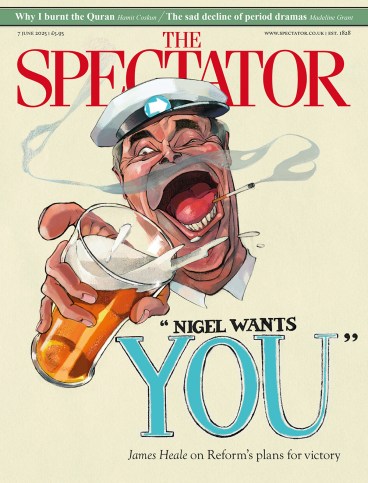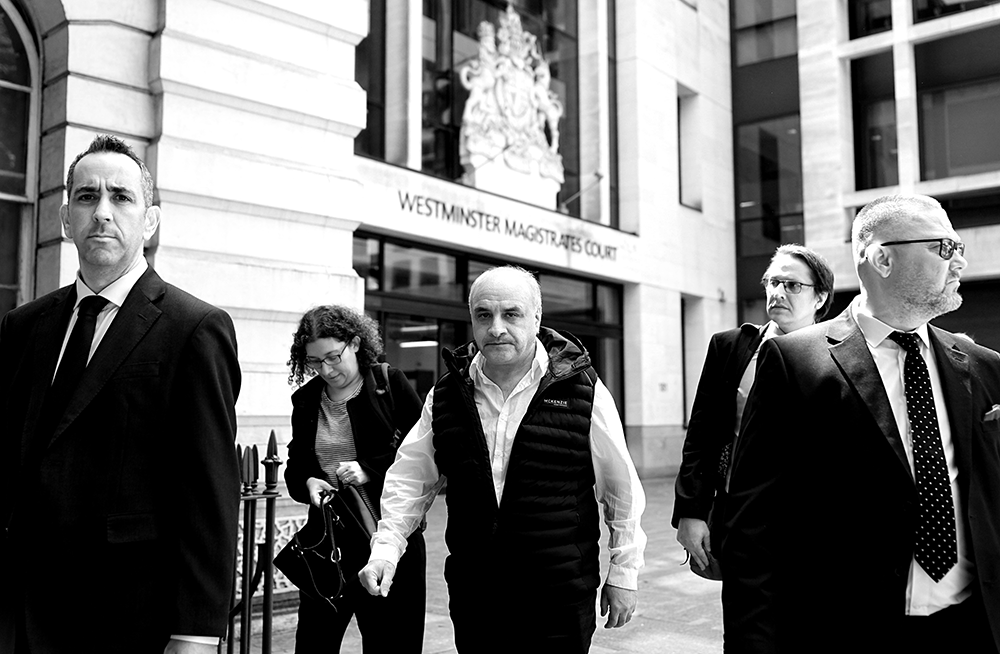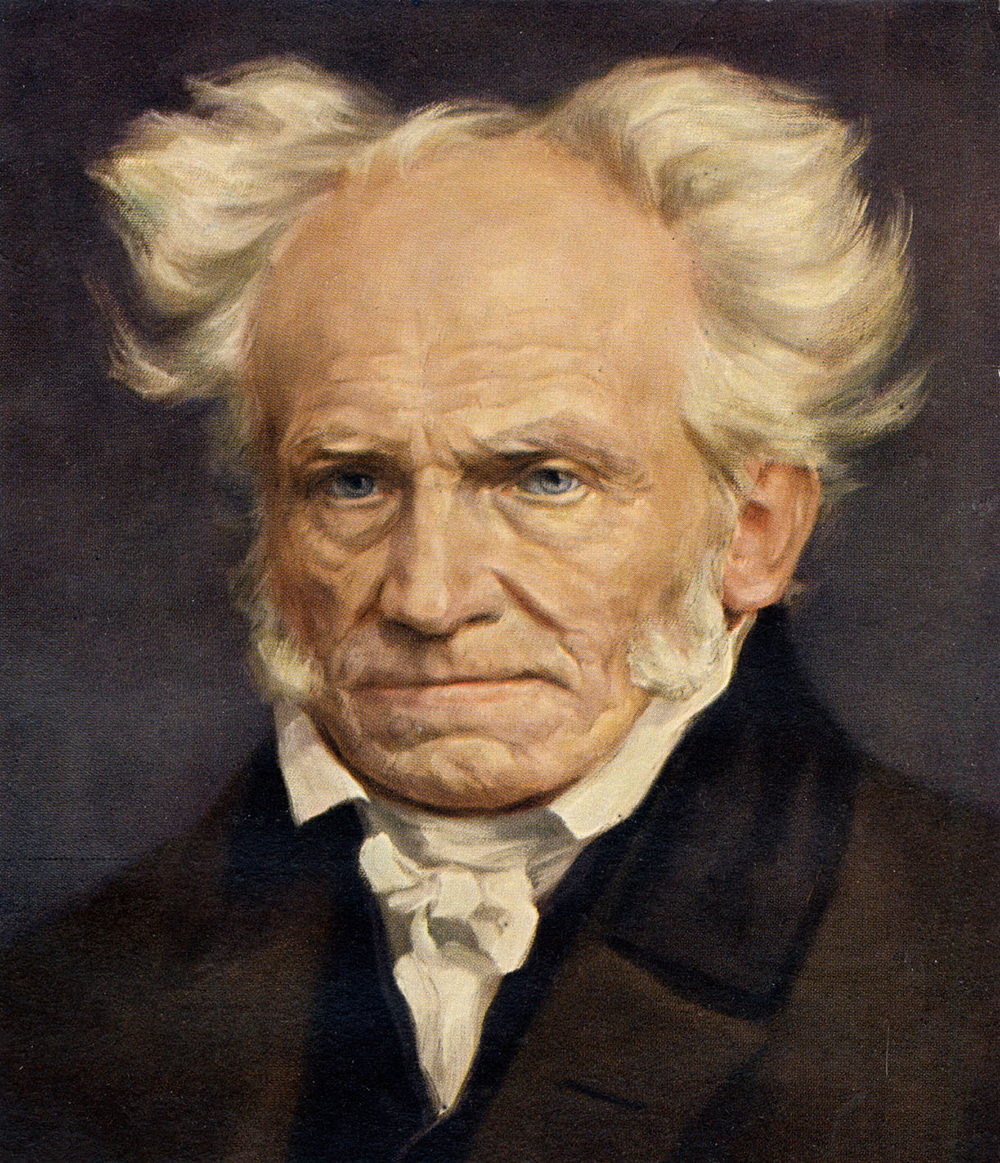
Britain without blasphemy laws is a surprisingly recent development. Blasphemy was abolished as a common law offence in England and Wales only in 2008 and in Scotland in 2021. But that was the final burial of a law dead for much longer. The last execution for the crime was in 1697; the last imprisonment in 1921; and the last successful trial in 1977 – Mary Whitehouse’s prosecution of Gay News for publishing a poem about a centurion’s rape of Christ’s corpse. Even if 11 local councils banned Monty Python’s Life of Brian two years later, the trend since has been towards trusting that the Almighty is big enough to fend for himself.
Yet this week the clock seemed to have been turned back to around ad 650. Hamit Coskun was convicted of a racially aggravated public order offence motivated ‘by hostility towards… followers of Islam’. His crime? Setting fire to a Quran, shouting ‘fuck Islam’ and declaring the faith a ‘religion of terrorism’ outside the Turkish consulate. The Crown argued Coskun’s demonstration could not have been peaceful, since it provoked a Muslim man to attack him. The alternative explanation – that Coskun had, in a rather regrettable way, proved his main point, eluded the professionals of Lord Hermer’s Crown Prosecution Service.
Coskun was originally charged with the exciting new crime of harassing the ‘religious institution of Islam’ – treating a faith with 1.9 billion followers like someone with hurt feelings. Although that charge was not pursued, the eventual ruling’s impact is effectively the same. Henceforth, anyone criticising a religion is at the mercy of the tender sensibilities of any bystanders. When parliament criminalised the fomenting of religious hatred, exemptions were left for ‘expressions of antipathy, dislike, ridicule or abuse’. Charging Coskun with a public order offence circumvented those protections.
The whole ritual of book-burning has very unhappy precedents. And it is, undoubtedly, distasteful and disturbing to many to publicly incinerate a text which is considered divinely-revealed truth. But freedom of speech means nothing if it does not include the freedom to provoke, challenge and even outrage. If the test of whether any opinion or action can be permitted is the level of disquiet it provokes in sensitive onlookers then freedom dies.
Writing exclusively in The Spectator, Coskun details his experiences. ‘Some may say that book-burning is a poor substitute for reasoned debate,’ he admits. But this was a political protest, aimed at drawing attention to the strangulation of Turkish secularism by Recep Erdogan’s Islamist regime. He was attacking an ideology, not Muslims as a group. As Coskun writes ‘if criticism of doctrine is redefined as hatred of believers, then space for lawful criticism of that religion – or any religion – collapses’. The court was unmoved.
Britain today does have a de facto blasphemy law. One which is a surrender to Islamists
His £240 fine won’t deter Coskun from campaigning. But it has made him ask difficult questions of his adopted country. He claimed asylum here because he believed Britain was ‘a country where an atheist refugee could speak without fear’. If he had known that challenging ‘Islamist propaganda… could lead to prosecution’, he might not have come. Is Britain still a country that believes no religion is beyond criticism? The honest answer is no.
Because Britain today does have a de facto blasphemy law. One which is a surrender to Islamists. Take a few recent examples. A teacher at Batley Grammar School was forced into hiding by a mob after showing his class a picture of Mohammed; not a single arrest was made of his harassers. The police supervised as a mother pleaded her son’s innocence at a mosque after he was accused of damaging a Quran. Pro-Jewish protestors holding placards noting that ‘Hamas are terrorists’ were arrested for their own ‘safety’. In each case, the state decided offending Islamist extremists posed a greater threat to public order than protecting free expression.
Compare the treatment of these actions with the gentle and indulgent cosseting of those who attend marches ‘in solidarity with Palestine’ and traffic in anti-Semitic tropes as merrily as any SA fighter of the 1930s.
Half a century on from the Gay News trial, three moral, social and cultural revolutions have revived blasphemy laws: Christianity’s decline, the expansion of the ‘progressive’ legal order and the failure to push back against Islamist ideology. In 1977, 66 per cent of Britons were Christian; today, it is 38 per cent. A state-sanctioned religion of multiculturalism has replaced it. And as confidence in our traditions and the strength of muscular liberalism weaken, so the ambitions of Islamists who wish to silence their critics and intimidate other Muslims grow.
It’s against this background that Labour MP Tahir Ali, rather than defending the dissenting tradition on which his party was founded, echoed Islamist calls for the law to protect religious texts. That is why Islamists led a street campaign calling for the banning of The Lady in Heaven, a supposedly blasphemous film.
That is why the government’s intention to introduce a definition of ‘Islamophobia’ is so dangerous. The concept was designed by extremists to silence criticism of their agenda, beliefs and hostility to democracy. Any government that seeks to endorse such heresy-hunting forfeits the right to call itself liberal.







Comments